The 14 Best Video Streaming Platforms for Broadcasters in 2025
Video streaming has revolutionized how businesses, educators, and content creators connect with their audiences. Whether you’re looking to broadcast live events, deliver on-demand content, or monetize your videos, choosing the right video streaming platform is critical to your success.
With a growing demand for high-quality, scalable, and secure video delivery, professional broadcasters need solutions that go beyond just hosting videos. Features like adaptive streaming, video API access, content protection, and monetization tools can make a significant difference in audience engagement and revenue generation.
In this guide, we’ll explore the 14 best video streaming platforms, highlighting their key features, pricing, and what makes them stand out. Whether you’re a beginner or an experienced broadcaster, this comparison will help you find the perfect live streaming platform to meet your streaming needs.
**Please note that video streaming platform features and pricing change regularly, and this post now reflects the most accurate information as of February 2025.
Table of Contents:
- B2B Video Streaming: How Video has Broken into Business
- Why Use a B2B Streaming Video Provider?
- What to Consider When Comparing B2B Video Platforms
- Comparison of the 14 Best Video Streaming Platforms in 2025
- Why Choose the Dacast Video Delivery Platform?
- Choosing Between Video Streaming Platforms
- Frequently Asked Questions
- Conclusion
B2B Video Streaming: How Video has Broken into Business

According to streaming statistics, the enterprise video market size is expected to grow to USD 31.4 billion by 2027. That’s more than a $11.6 billion increase compared to 2022.
Today, video streaming-as-a-service solutions have become a primary way to engage with customers. Video content plays different roles in different industries, but the medium’s popularity is apparent across the board.
The demand for online video is growing exponentially. As a result, so do the number of business video hosting solutions designed to meet that demand.
Some benefits that the live streaming and video marketing model can have on most B2B industries include:
- Enhanced engagement: Video streaming for B2B businesses presents a unique opportunity to build more engagement with their audiences. This is crucial for events such as product launches and webinars, as businesses can hold Q and A sections and help users understand their products. According to Facebook, live videos get six times as much engagement as regular videos.
- Wider reach and visibility: Video streaming allows B2B businesses to break location barriers and reach a wider audience globally. This helps them reach new markets and build international partnerships.
- Opportunity to demonstrate expertise and thought leadership: Through video streaming. B2B businesses can conduct events and webinars that help them set themselves up as experts in their industry. They can use these events to share information, industry trends, research outcomes, and more.
- Optimized marketing funnels: Businesses can incorporate video streaming content at different stages of their marketing channels to optimize their results. For instance, product videos and testimonials for lead nurturing and marketing, etc.
Several free, consumer-grade platforms are available, but professional broadcasters need something specially designed to fit their needs. They need to use a B2B enterprise video platform.
Why Use a B2B Streaming Video Provider?
To understand the need for a professional streaming platform, you must know the difference between B2C (business-to-consumer) and B2B (business-to-business) video streaming solutions.
Many amateur v-loggers and content creators use B2C streaming services, such as YouTube, to broadcast their content. These platforms are typically free, but they come with many limitations. Free B2C streaming services typically acquire the rights to your video content and can monetize it themselves.
Most businesses and organizations won’t want to give up the distribution rights to their content if they don’t have to, which is why professional broadcasters opt for a B2B video platform.
Free B2C streaming video providers also typically display third-party ads and comments on your broadcasts, which serves as a distraction from your valuable video content. If you plan to stream live events like concerts, meetings, and religious events, you’ll want a B2B streaming platform that keeps the broadcasting process simple and professional.
Likewise, if you want to stream live video on your website, a B2B platform will give you more control over the look and feel of your live stream.
As you might expect, B2B streaming platforms aren’t free. However, the small monthly fee is a worthwhile investment for anyone who plans to use live video as part of their business strategy or wants more control over how their broadcasts appear to viewers.
Next, we’ll dive deeper into specific features to look for depending on your needs and goals.
Free Vs Premium Live Streaming Platforms
Before discussing the premium video streaming platforms further, let’s see how they compare to the free ones in more detail.
Free Live Streaming Platforms
Sometimes, due to budget constraints and availability, broadcasters may opt for free video streaming platforms. However, most free platforms come with some shortcomings that make them more suitable for non-professionals and recreational purposes.
This is especially so for broadcasters using their phones for streaming as opposed to those using professional gadgets like cameras. For instance, most gamers prefer these channels.
Pros
- Top off the list, they’re free, which makes them available to a wider range of users, including small businesses and individuals.
- Since they have larger audiences, they’re more commonly known, and hence easily reachable.
- They easily integrate with social media platforms, which enhances overall engagement and social sharing.
- Most include interactive features such as live chats which enhance engagements further.
Cons
- Videos streamed through free live-streaming platforms can vary. For instance, when there’s high traffic, it may be of a lower quality than on professional platforms.
- There are fewer options for branding and customization which can be a downside for businesses.
- Some free platforms are ad-driven, which can interrupt viewers and distract them from watching your content.
- Most free video streaming platforms only offer basic analytics. They lack the in-depth insights you may need to improve your streaming performance.
Premium Live Streaming Platforms
As discussed, premium platforms offer more professional streaming services and are preferable for B2B businesses. It’s always important to ensure the streaming platform you choose has enough benefits that match its price.
It helps if the platform has a free trial that you can test out.
Pros
- Premium video streaming platforms offer more robust streaming features compared to their free counterparts. These include features such as advanced analytics, high-quality streaming, and more monetization options.
- It’s suitable for businesses as it offers more customization options. These help with personal branding.
- They offer better security options for your platform and content. These include encryption, password protection, and controlled access.
- You also get more reliable streaming with lower latency and less buffering. Premium platforms often have multi-CDNs and adaptive bitrate streaming.
- Professional video platforms also offer access to prompt customer support. This is especially useful for businesses in case any technical issues come up.
Cons
- Most premium platforms require a subscription payment, which can make them costly. This can be limiting to smaller businesses and individuals.
- The platforms can be more complex to set up and use. This requires more technical knowledge.
- Most free video streaming platforms have a large user base, so hopping on one cuts on your outreach. However, with a premium platform, you’ll need a lot more effort to attract an audience and build your audience.
- Using premium platforms often requires you to commit for a longer period and sometimes sign contracts.
What to Consider When Comparing B2B Video Platforms
To compare enterprise streaming platforms on the market effectively, you should start by narrowing down what you want to achieve.
This process is not really about how to find the cheapest or the most popular platform. Instead, it’s about choosing the platform with the most significant number of beneficial attributes for you or your business.
The features that work well for you may not be necessary for other broadcasters. On the flip side, a feature essential to another broadcaster may be entirely unnecessary for you.
Here are some key factors to consider when looking at paid video streaming platforms:
Protecting Your Videos
How would you feel about a competitor downloading your video and sharing it as their own without you knowing? Or seeing one of your videos going viral with no way to link it back to you?
If making sure your videos don’t get shared without your consent is a big concern, this is one element to consider when weighing your options.
Many free B2C streaming solutions make it easy for people to download your videos.
On the other hand, B2B enterprise video platforms like Dacast offer various ways to prompt your videos:
- Watermarking: Watermarking allows you to add a watermark to your video whenever someone watches it, allowing users to see who created it. That’s a great way to add your branding to your content.
- Digital rights management: Digital rights management, or DRM, protects your VOD from anyone stealing, downloading, or copying your content. That’ll keep your content safe.
- Password protection: A great way to protect your content is with password protection if you’re using subscriptions or pay-per-view to generate revenue with your content.
- Geographical restrictions: If you only want to share your content in a specific country, you can achieve that with geographical restrictions.
B2B enterprise video platforms like Dacast have many features to make piracy much harder. When comparing the top video platforms, look for watermarking, digital rights management, and password protection features.
Keeping Your Viewers Engaged with Your Content
With many free video streaming platforms, when a potential customer watches one of your videos, be it a thought leadership video or a how-to video, once your video ends, “watch next” suggestions pop up.
However, with top video streaming platforms, like YouTube, the “watch-next” content is likely to be produced by a competitor.
You want to instead look for a video platform that allows you to host your content and keep viewers engaged with it. Look for a platform that offers a video gallery, playlist feature, or “watch-next” feature that suggests other videos to watch on your platform or website.
Ensuring Performance in Critical Moments
When looking for a video streaming solution, you want to ensure they offer tools to ensure the quality of your live streams and VOD content.
- Multi-CDN: A content delivery network shortens the distance between your content and your viewers, helping to provide your viewers with quality content. With multiple CDNs in place, if one content delivery network goes down, another will take its place, keeping your content rolling.
- Adaptive bitrate streaming: With adaptive bitrate streaming, the video player detects the end-users internet speed and device capabilities and shows them the best stream quality based on these factors. That helps ensure your viewers enjoy the best viewing experience possible.
- 24/7 Customer support: If you’re live streaming content or sharing a VOD for an important meeting or event, you need your video content to work. That’s why you want to look for a platform with 24/7 customer support so that when you need help, you can access it.
For example, if an organization relies on sales demos, a laggy sales demo video can stress out your salespeople and result in lost customers. That’s why you need the above features in a video streaming platform.
What if something goes wrong? How easy is it to connect to support? That’s one downfall of free consumer platforms like YouTube and Facebook. When something goes wrong, it’s impossible to reach support within a reasonable time.
That’s why customer support is so important when choosing a video delivery platform. The best streaming services offer 24/7 customer support, so you can always reach someone if something goes wrong.
Remote Team Friendliness
Do you have employees, partners, or collaborators working remotely?
Like most businesses in 2025, you likely have people you have to communicate with worldwide. Consider features that would make everyday events like onboarding and training much easier.
- Live streaming: Live streaming is a great way to bring employees together who are spread out geographically.
- Browser-based streaming: Not every live stream needs to be a big production. Browser-based streaming makes it easier for various team members to create live streams.
- Expo video galleries: Want to bring certain content together? With Expo video galleries, you can group similar content, such as training videos or product launch videos, making it easier for employees to find the content they need.
- Chapter markers: For VOD content, chapter markers make it easier to navigate your content.
- Screen sharing: Sometimes, a picture is worth a thousand words. With screen sharing, you can show presentations or web pages directly to your viewers without describing them in detail.
Also, consider security features like domain and geographic/IP restrictions, password protection, and tokenized security that would protect your users and sensitive company content.
Videos can be a great way to promote team togetherness and keep your remote team on the same page.
Monetization
There are three common ways to monetize video content.
- Pay-per-view: Viewers pay for access to specific content, usually for a predetermined time.
- Subscriptions: Allow viewers unlimited access to all your content with subscriptions. Standard subscription lengths include one-month, quarterly, and yearly subscriptions.
- Advertisements: Connect with an advertising network, bring in your ad partnerships, and make money via advertisements that run before, during, or after your content.
Do you plan to monetize your videos through ads, subscriptions, and/or pay-per-view?
It’s rare to find a video streaming platform that supports all three as Dacast does. If a platform provides monetization features, it’s usually one or two of the three.
That’s why you should know what type of monetization methods you want to utilize, so you can choose a platform that supports your monetization goals.
If you want to monetize your content via pay-per-view or subscriptions, there are some additional features you will want to look for:
- Integrated paywall: With an integrated paywall, you can easily accept payments without integrating a third-party app.
- Worldwide currency: If you have global viewers, you need a paywall that accepts global currency and automatically detects a viewer’s country, adjusting the currency.
- SSL Encryption: Keep your viewer’s data safe with SSL encryption.
Branding
Want to customize your video player to be more on-brand? Or want the ability to add your logo to the video in case it goes viral?
You’ll need to look for features like watermarking, player APIs, and an easily embeddable white-label video player.
Do you have a mobile app to which you want to add your video player? Look for mobile SDKs. They make adding your video player to native iOS and Android apps easy.
Marketing
Video can be a crucial marketing tool. Look for tools that make it easier for you to integrate your videos with your marketing efforts.
- Marketing App Integrations: If you use popular marketing tools such as SalesForce or HubSpot, look for a video platform that allows you to integrate these tools. Integrating these tools with your video marketing platform can help improve sales and customer relationships.
- Rich analytics: Look at how advanced a platform’s analytics are. Rich analytics can provide insight into where your customers are located, how long they watch your content, and if they engage with any CTA or links within your video content. This information can help you drive future content creation and help with optimizing video content.
- Call to Action: With marketing videos, you want to spur your viewers to take action. A platform that includes the ability to add clickable calls to action can help increase your marketing efforts.
- Live captions: Keep your videos accessible to everyone with live captions.
Beyond these considerations, it’s important to consider reliability and price. Let’s cover that next.
Reliability
When comparing platforms for reliability, pay attention to the features that ensure smooth streaming every time. You can’t use a spotty streaming setup if you’re trying to live stream a significant event.
Look for a service that partners with a video CDN (content delivery network) to deliver broadcasts to viewers.
CDN-powered live streaming services allow you to stream content globally without reaching a viewer limit.
In addition to the reliable solution, you should ensure the streaming service comes with 24/7 customer support.
Price
Price is an equally important factor for many broadcasters. With close competition between live streaming platforms, broadcasters generally want the best quality and features for the lowest price.
The good news? This competition ultimately helps to keep prices lower while maximizing the impact of your budget.
Users who find high-quality online streaming platforms at a great price tend to commit immediately. However, we recommend comparing pricing plans to narrow down your options.
Despite the relatively competitive prices, these investments are still hefty. We recommend shopping around or taking advantage of free trials.
Comparison of the 14 Best Video Streaming Platforms in 2025
With those key features in mind, we’re ready to review the 14 top enterprise-grade video streaming platforms.
Take a moment to review the features that each of these platforms offers. Identify which features are most important for your live streaming goals.
Which are the non-negotiables? Are there features you could afford to do without?
Let’s dive in.
1. Dacast

Dacast is a unified streaming solution that offers a wide variety of professional features. We offer both live streaming and video-on-demand platforms.
This platform is designed for broadcasters from enterprises, schools, and other professional organizations. For you, that means a high-quality live-streaming experience for your viewers.
Basic Functionality:
Dacast provides comprehensive live streaming and online video hosting solutions. Users can embed videos on their websites while maintaining 100% content control. Dacast offers an integrated paywall, password protection, referrer restriction, and analytics dashboard, among other features. Dacast is also one of the few video streaming platforms with an ICP license for VOD and live streaming in China.
A notable thing to consider is that Dacast is one of the few platforms that lets you monetize your videos in three different ways:
- Subscriptions (weekly, monthly, or quarterly),
- Pay-per-view live stream and on demand video content
- Ads via SVOD, AVOD, and TVOD
Dacast also gives you the ability to generate promo codes.
Key Features:
- Secure, global content delivery, including industry-best video hosting
- 24/7 tech support with all plans, including email and live chat
- Video security features, including password protection and encryption
- RTMP (real-time messaging protocol), ingest, playback, and streaming support
- OTT Platform solutions to broadcast content across all devices
- Low-latency HTML5 channels for video streaming
- Expo galleries video portal
- Live encoding support for the top video encoders
- Player API access for 3rd party player integration
- Video API access on premium plans (event and scale)
- Multi-bitrate streaming
- Annual transcoding data included
- Real-time analytics
- Ad-free streaming
New!
- Fully integrated RTMP streaming platform features
- M3U8 file creation capability to enable adaptive streaming delivery of OTT video content across various devices
- AES encryption for secure video streaming
- Multi-user access on Scale and Custom plans
- Zoom live streaming integration for meetings and live events in real-time
- Expo 2.0 galleries video portal for immersive video experiences
Pros:
- Live streaming and VOD packages on all pricing plans
- RTMP encoder enabled software
- Unlimited viewers and live channels
- Mobile streaming support
- White label and branding control
- Embeddable HTML5 video player
- Mobile device support
- Live stream recording
- China Video Hosting
- Plans for every budget
Cons:
- Takes a little bit of time to learn all of the features
Pricing:
Streaming solution plans with Dacast come at three levels. The video streaming pricing plans include the following:
- Starter plan: Ideal for newcomers with 2.4 TB of bandwidth and 500GB of storage per month, billed annually at just $39 per month.
- Event plan: For organizations who’d rather not sign a contract and want to purchase bandwidth separately. It offers 6 TB of bandwidth upfront, 250 GB of storage, and costs just $63 per month (or $750/year). Additional data and storage can be added as needed.
- Scale plan: Includes 24 TB of bandwidth per year, with 2000 GB of storage for $165 per month billed annually. These Scale pricing plans add phone support, a monetization paywall, an M3U8 online player for live channels, ad insertion, white-label Cnames, and video API access.
- Custom plan: If your enterprise business has high-volume streaming needs.
Read more here about live streaming pricing plans in more detail.
2. Twitch
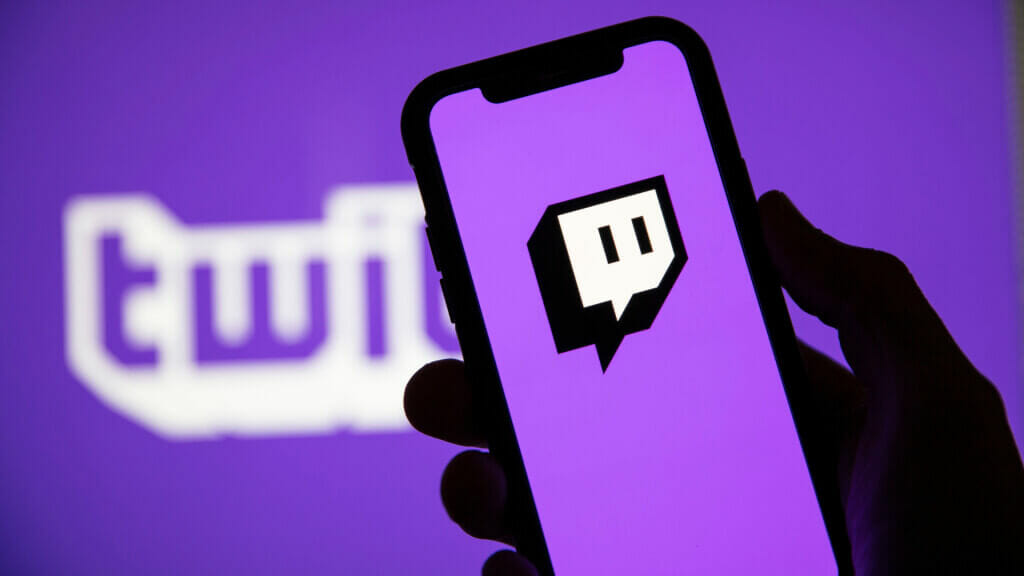
Twitch.tv is a very popular application in video gaming. Streamers set up channels where viewers and supporters can follow them.
Basic Functionality:
This site is pretty niche, but it’s a tremendous live-streaming platform if you’re trying to reach an audience in the gaming, fantasy, or tech industry.
Key Features:
- Tools for tipping
- Primarily used to stream video games
- Live chat for viewer engagement
Pros:
- Mobile broadcasting
- Compatible with both iOS and Android devices
Cons:
- Mostly geared toward consumers
- No advanced video streaming tools
Pricing:
Twitch does not charge content providers to use their platform but allows them to profit from their users. This program is called Twitch Subscriptions, and it includes three tiers:
- Tier 1 subscription – $4.99/month
- Tier 2 subscription – $9.99/month
- Tier 3 subscription – $24.99/month
3. Flowplayer
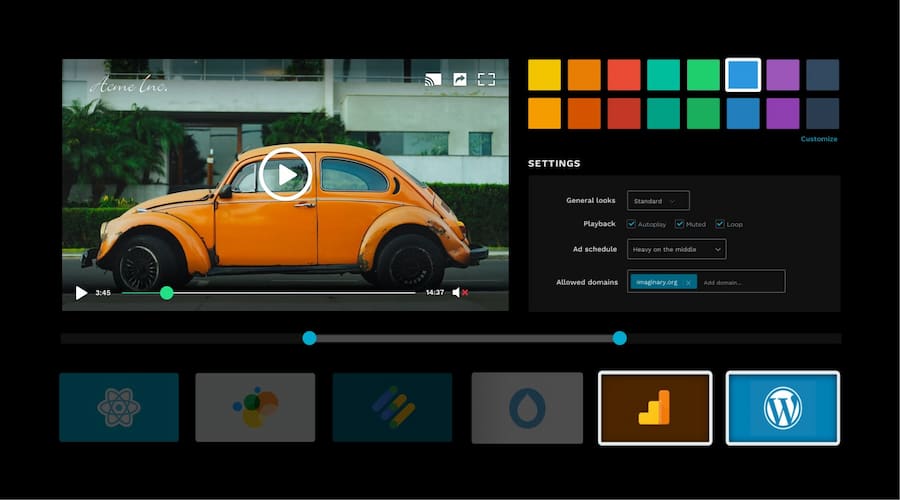
Flowplayer has offices in the United States, Finland, and Sweden. Flowplayer was launched in 2013, but the site provides very little background information on the company’s history.
Basic Functionality:
Flowplayer is an online video platform that serves large media houses and small businesses. They’re primarily known for their white-label streaming services and top-of-the-line monetization solutions.
If you’re looking for a simple online video platform, Flowplayer could be an option for you.
Key Features:
- High-quality video player
- Live-streaming capabilities
- Award-winning monetization solutions
- Live-streaming and VOD hosting
- Real-time video analytics
- Android and iOS SDK for mobile app development
Pros:
- Mobile streaming
- Tools for marketing
- Multiple options for video monetization
- Dedicated customer support
Cons:
- No China video delivery
- Very basic platform
Pricing:
Flowplayer is now a part of Wowza and pricing plans are no longer published. They have custom-pricing solutions custom-built to cater to advanced streaming needs, but readers will have to contact Flowplayer directly.
4. Vimeo

Since its founding in 2004, Vimeo has grown to be one of the most well-known video platforms on the internet.
Originally, Vimeo made its mark by offering an ad-free experience for video sharing, which made it an instant hit with creators and audiences. Now, it offers live streaming and enterprise video hosting space, with a range of services targeting businesses of all sizes.
The platform emphasises quality over quantity, which is appealing to many professional creators and businesses. Vimeo offers a cleaner user experience and a vast array of customization options.
Basic Functionality:
Vimeo is a cloud-based video streaming platform with comprehensive video hosting and live-streaming functionality. Vimeo has a simplified live streaming interface with features like text and graphic overlays and social share options. It also has plenty of tools that help with greater audience interaction.
Key Features:
- Cloud-based video hosting
- Small-scale streaming solution
- Text and graphic overlay
- Collaboration and interaction tools
- Social share options
- Flexible storage options
Pros:
Vimeo is simple to use, even if you are not a techie. They offer low-budget options so that small organizations can use the platform as easily as larger organizations. At the same time, the interface is very professional.
- User-friendly interface with simple navigation
- Great in-class security and privacy settings
- Good video playback quality
- You can embed your live stream video using this cloud streaming platform on your website.
Cons:
- Some issues with connection to an internal server
- No China video delivery
- Limited live streaming and video hosting capabilities
- Requires you to be tech-savvy to take full advantage of its features and have everything running smoothly
- The live event management system is pricier than other services and lacks robust features you’ll find on other platforms
- Buffering times are longer than other cloud video services
- You can’t convert the text in English to other languages
Pricing:
Vimeo offers basic video hosting plans that are suitable for content creators and startups. These include:
- Free plan
- Starter: $12/ month if billed annually
- Standard: $25/ month if billed annually
- Advanced: $65/ month if billed annually
- Enterprise: Custom-priced, custom-built plans for advanced streaming needs
Vimeo OTT:
- This OTT-specific pricing package comes with the Vimeo.com relationship. Its plans are Starter and Enterprise. With Starter, you can create a subscription product where you pay $1 per subscriber/month, or 10% for a one-time purchase or rental product. For Enterprise, you need to contact the Vimeo sales team.
- Custom pricing, you need to contact them for a quote and demo.
For more details, check out our comprehensive guide to Vimeo Livestream pricing.
5. Youtube Live
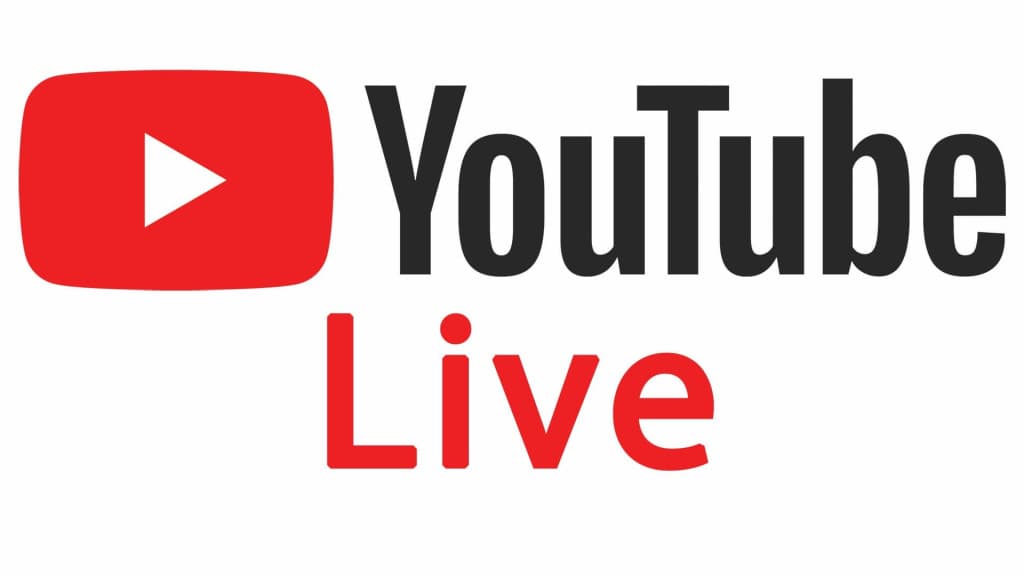
YouTube is probably the most popular video streaming solution on the market. It was one of the first platforms to make online live streaming popular.
Basic Functionality:
This Google-owned website is one of the best options for consumer-grade broadcasting, but many businesses use it to dip their toes in video broadcasting.
As we mentioned, YouTube isn’t ideal for business hosting since the platform has limits on monetization, and it does not give users full ownership of their content.
Also, it’s common for platforms like Youtube to be blocked in organizations to increase workforce productivity and minimize distractions. So if your ideal customer works in a corporate building or school, that should be a big deal.
The biggest perk of using Youtube? It’s completely free to use and pretty easy to navigate.
Key Features:
- Ad-based monetization is limited to users with large followings and watch times
- No notable security features
- Popular among consumers
- Powered by Google
- Easy to share videos
- Videos can be embedded in other websites
- No white-label capabilities
Pros:
- Free to use
- Viewers are familiar with the site
- User-friendly
- Easy to embed the player on your website
- Live and VOD hosting
Cons:
- No white-labeling
- Only ad-based monetization (with limitations)
- Limitations on broadcasters’ ownership of content
- Off-brand third-party ads and logos
Pricing:
Youtube is free of charge.
6. IBM Cloud Video
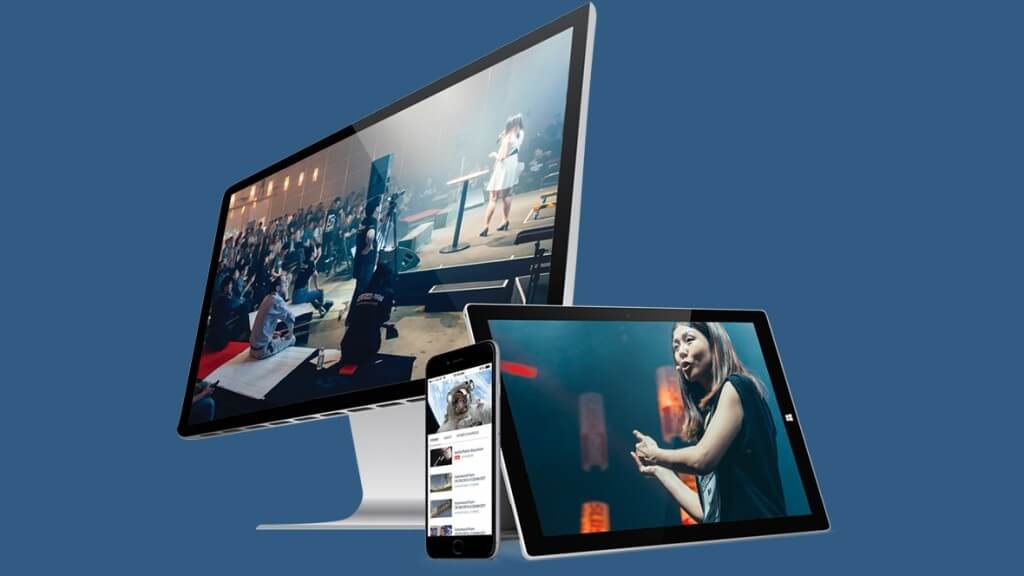
Once known as UStream, IBM Cloud Video is a reliable streaming video solution, capable of live streaming and VOD hosting. IBM Cloud Video is expensive, making it the best video delivery platform for enterprises and organizations with large budgets.
Basic Functionality:
IBM Cloud Video is a live-streaming and on-demand video hosting solution.
Key Features:
- Reliable platform
- Stellar customer support.
- An internal content delivery server
- Built for enterprises and large organizations
Pros:
- Professional platform
- Great for professional broadcasters
- Reliable technical support
- Equipped with powerful features for broadcasters
- Hong Kong (China) video hosting
Cons:
- Only ad-based monetization
- Some limitations with internal streaming content delivery servers
- Some essential features only available with high-ticket plans
Pricing:
The pricing plans for the IBM Cloud Video include:
- Silver – $137/month
- Gold – $688/month
- Platinum – $1,380/month
- Custom – Please contact IBM Cloud Video for custom plan pricing
7. Wowza
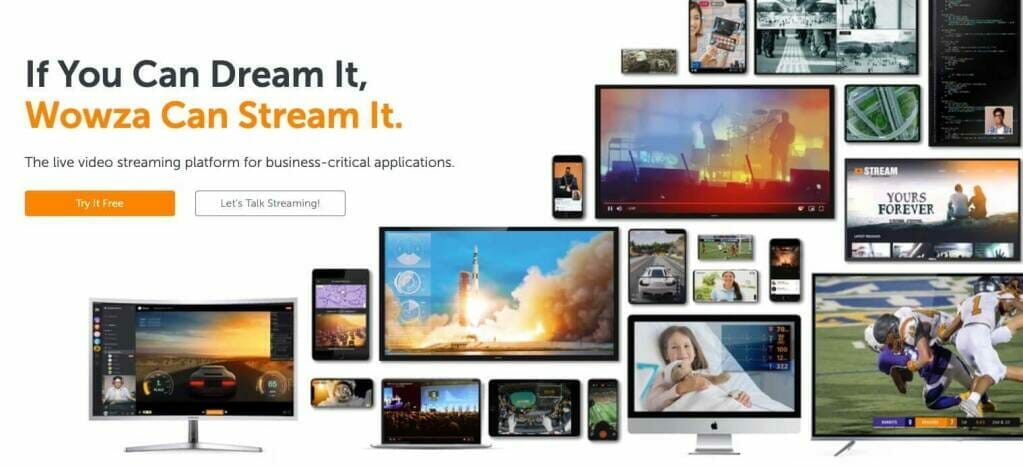
Wowza is one of the game’s oldest online video hosting platforms. Although some of Wowza’s plans are more expensive, it’s known for its budget-friendly options. This platform hosts live streams and video on demand.
The top feature of Wowza is its fantastic security features.
Basic Functionality:
Wowza is a video hosting platform for broadcasters with a wide range of budgets.
Key Features:
- Video content management
- Supports high-definition streaming
- Robust security features
- Video API
- Simulcasting capabilities
Pros:
- Powerful security
- Supports streaming on most devices
- Live-streaming and video-on-demand
- Connects with Google Analytics
- China video delivery
Cons:
- Monetization through integrations only
Pricing:
Wowza Streaming Cloud offers three distinct pricing plans and services. Within Live Event Pricing, monthly plans include:
- One Month of Streaming: $149 one-time purchase; includes 15 hours of live streaming and 500 viewing hours
- Pay As You Go: $0 per month only pay for usage at a rate of $2.50 per streaming hour and $0.10 per viewer hour
- Enterprise: For large audiences or high-volume streaming. Pricing is custom.
These Live Event plans include complete brand control, multi-bitrate streaming, and HD and UHD streaming.
The Wowza Streaming Engine has its pricing plan packages. These professional-grade streaming plans are billed annually and include the following:
- One Month Event: $295/month + $295/month for each additional instance
- Basic: $195/month + $195/month for each additional instance
- Enterprise: Please get in touch with Wowza directly for access to their custom-tailored high-volume enterprise solutions
Check out Wowza’s pricing page for alternative plans and packages.
8. Brightcove
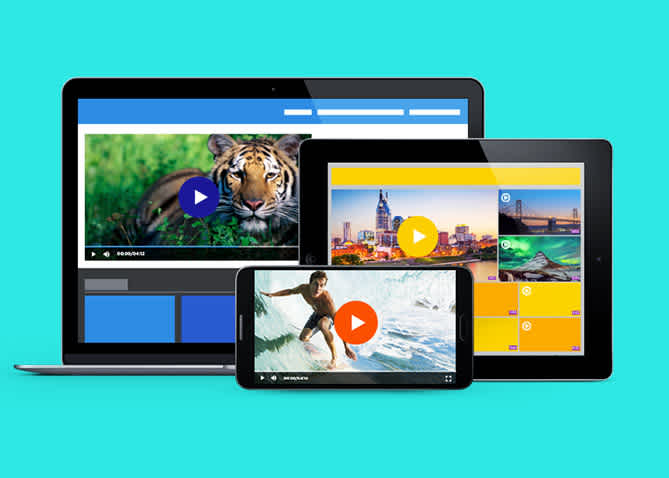
Brightcove is a video hosting platform with a particular emphasis on monetization and marketing. This platform has been around since 2004 and has grown with video streaming as a service industry.
Brightcove is known as a luxury B2B video platform that’s best suited for larger enterprises.
Basic Functionality:
Brightcove is a video hosting platform designed to help with marketing and monetization.
Key Features:
- Video monetization
- Marketing and advertising tools
- Live streaming
- Powerful app integrations for maximum customization
- Insightful video analytics
Pros:
- Privacy and security tools
- Built-in editing features
- Many apps and integrations
- Reliable technical support
Cons:
- Additional purchases are required for 24/7 support
- Difficult for beginner broadcasters to use
Pricing:
Brightcove builds custom pricing plans to suit enterprise streaming needs.
Here is what we currently know about their pricing structure:
- Basic Plan: Starts at $99 per user per month, which includes core video hosting and management functionalities. This plan is well-suited for businesses with basic video needs, such as small content libraries or internal communications.
- Enterprise-Level Plans: These plans are highly customizable and include advanced features such as live streaming, in-depth analytics, security options, and robust integrations. Pricing is tailored depending on the specific needs of the business, including audience size, storage requirements, and additional services like video monetization and support.
- Customization Costs: Enterprises may face additional expenses for features like platform customization, data migration, employee training, and ongoing maintenance. These costs can range from a few thousand dollars to significantly more, depending on the complexity of the requirements.
- Free Trial: Brightcove offers a free trial for prospective users to test its features before committing to a subscription, which is a helpful option for evaluating its capabilities in real-world scenarios.
For more information on Brightcove’s custom pricing, please contact their sales department to find out the pricing structure for their live streaming features.
9. Facebook Live

Facebook offers both “Live” and “Watch,” which allows businesses and organizations to host on-demand content or broadcast live content.
Live streams can be hosted on personal profiles, pages, and groups, but on-demand “Facebook Watch” videos can only be published on Facebook Pages.
Facebook Live is commonly used by businesses and organizations just dipping their toes in live broadcasting. Since it’s a free platform, Facebook poses many challenges related to video ownership, time limits on videos, monetization, and more.
Aside from those few technical restrictions, live streaming with Facebook Live is valuable for connecting with existing audiences.
Basic Functionality:
It’s common for broadcasters who use premium streaming solutions to connect their accounts to multicast on Facebook and their websites. That allows users to tap into their existing Facebook audiences while accessing the professional tools of a video hosting solution.
Key Features:
- Facebook Live
- Facebook Watch
- Facebook Groups
- Facebook Pages
- Easy video sharing
- Live commenting and reacting
- Paid ads
- Some tools for business use
Pros:
- The app is free
- Viewers are familiar with the platform
- Live chat promotes engagement
- Taps into existing following
Cons:
- No monetization options
- Time limits on live videos
- Can’t remove Facebook’s branding
Pricing:
Facebook is free of charge.
10. JW Player
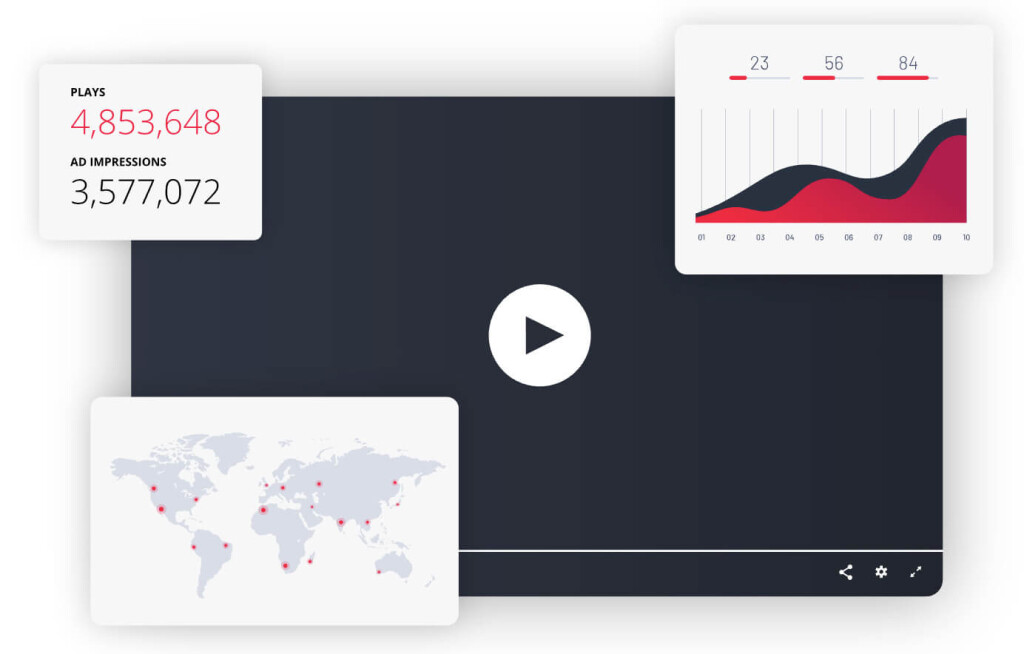
JW Player was initially founded as a video player. However, the platform has expanded to include video hosting and delivery services.
Basic Functionality:
Recently, the company added live streaming to its offerings. JW Player is a competent player that’s based on open-source coding. The live streaming platform includes the player itself, among other valuable features.
Key Features:
- Live streaming and video-on-demand (VOD) hosting
- A cloud-based content management platform
- Custom video galleries
- Up to 1080p HD streaming
- Support for monetization via advertising
- Multi-bitrate and adaptive streaming
- Email support through the $100/month plan level
- Video API access on all plans
- Only custom-priced Enterprise plans offer DRM
- Monetization via advertising
Pros:
- HD streaming
- Video recommendations engine to generate a custom “watch next” recommendations for increased viewership
- Global content delivery
Cons:
- No China video delivery
- Only basic security features
- Only ad-based monetization
Pricing:
JW Player essentially offers 4 pricing tiers:
- Stream: This plan offers video delivery, asset management, instant and broadcast live
- Play: This plan offers cloud hosting, HTML5 Player, OTT apps, and mobile SDKs
- Engage: Take advantage of real-time analytics, recommendations, article matching, and custom reports
- Monetize: Use tools like ad insertion, player bidding, outstream ads, and studio DRM
Publishers and broadcasters should contact JW Player directly for pricing and features.
11. OBS Studio
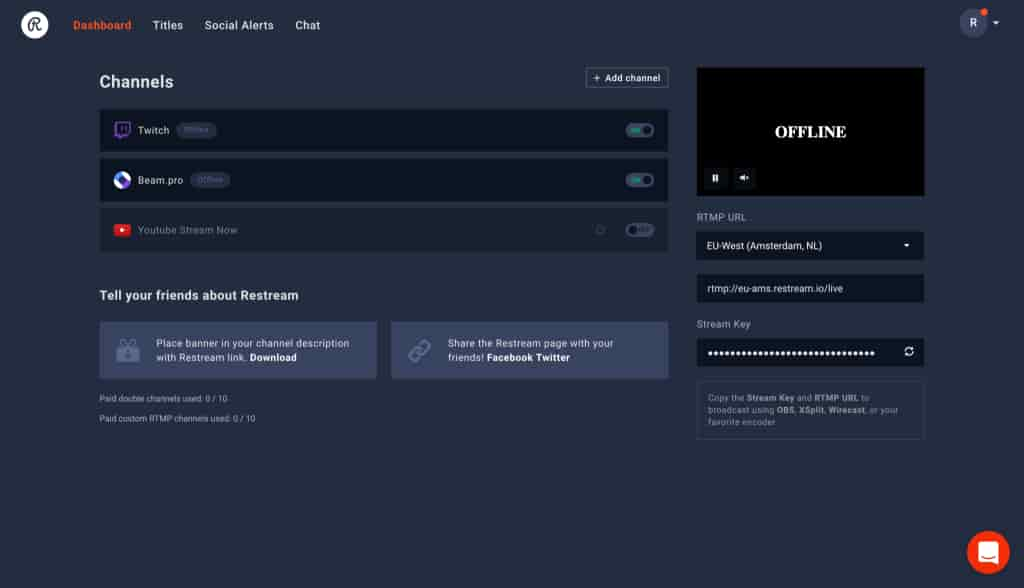
OBS Studio is an excellent solution for those looking for free and open-source live-streaming software. While it lacks some of the bells and whistles of paid options, it more than makes up for it in terms of functionality and customization.
Basic Functionality:
OBS Studio allows you to capture video from your desktop or webcam and audio from your microphone or desktop. You can stream on Twitch, YouTube, Facebook Live, and more.
Key Features:
- High-performance real-time video/audio capturing and mixing
- Support for Windows, macOS, and Linux operating systems
- Unlimited scenes and sources
- Live RTMP streaming to Twitch, YouTube, Facebook Live, and more
- File output to MP4 or FLV
- GPU-based game capture for high-performance game streaming
- Free and open-source software released under the GPLv2 license
Pros:
- Free and open source
- Highly customizable
- Great for gaming streams
Cons:
- No monetization options
- More complex than some paid solutions
Pricing:
OBS Studio is free and open-source software released under the GPLv2 license.
12. THEOplayer
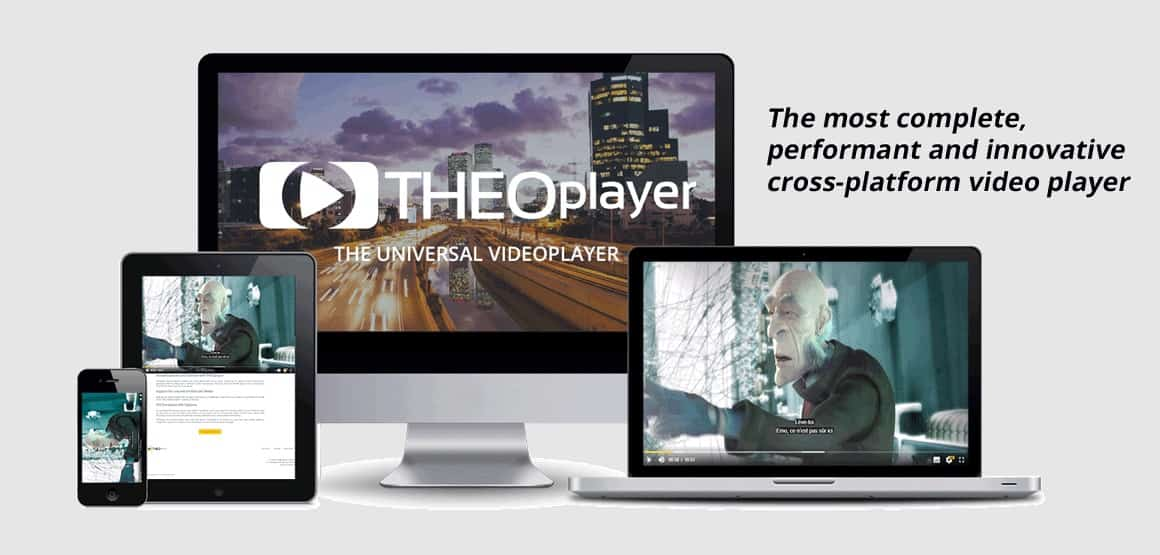
THEOplayer is a feature-rich yet lightweight HTML5 video player. It offers an SDK to help developers build a custom UI on top of the player. It provides live and on-demand streaming support for DASH, HLS, and progressive downloads.
Basic Functionality:
An extensive API gives developers complete control over the video playback experience.
Key Features:
- Adaptive bitrate streaming (ABR) with DASH, HLS, and progressive download
- DRM support with Widevine Modular, PlayReady, and FairPlay Streaming
- Advertising pre-rolls, mid-rolls, post-rolls, and companion ads
- Analytics with Google Analytics, Comscore, and Adobe SiteCatalyst
- Multi-language subtitles and closed captions
- Virtual reality (VR) and 360° video support
- Player UI customization with CSS styling
- Deep integration with popular content management systems (CMS) like Drupal, Joomla, and WordPress
- Live stream delivery with live DVR (time-shifting)
Pros:
- Lightweight player
- Feature-rich API
- Video delivery to all popular browsers and devices
Cons:
- Can be a little confusing for some users
Pricing:
THEOplayer prices are no longer displayed on the platform and you’d need to contact their experts to discuss your pricing based on the nature of your projects.
13. Kaltura
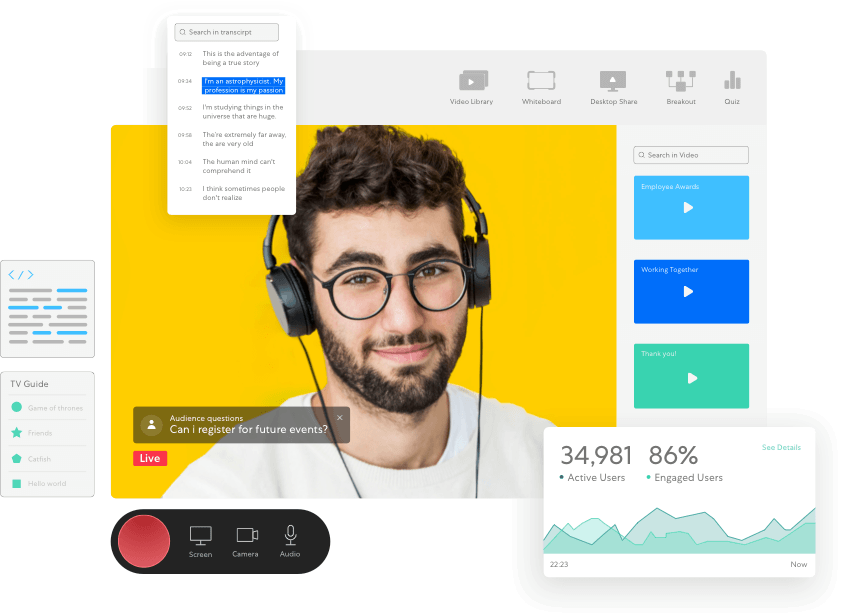
Kaltura is a powerful open-source video platform that offers on-demand and live-streaming capabilities. This platform was designed with flexibility in mind, which means it can be customized to fit the specific needs of any organization.
Kaltura is used by some of the biggest names in the business, including SRG SSR, Mediacorp, KOCOWA, and more.
Basic Functionality:
Kaltura’s on-demand video hosting capabilities are top-notch. This platform can handle an unlimited number of videos and plays with ease. The live streaming feature is also robust, with the ability to stream to an unlimited number of viewers.
Key Features:
- Unlimited on-demand videos and plays
- Unlimited live streaming
- Flexible and customizable platform
- Powerful integrations
Pros:
- No limits on video length
- Can be embedded on any website
Cons:
- The free version has limited storage
Pricing:
Prices are based on the solutions you’re looking for. These include but are not limited to:
- Limited trial: $1 for two webinars
- Business: $150/month billed annually
- Enterprise: Custom pricing
- Free trial: 14 days
- Basic: $17/month up to 8 participants per session and up to 10 hrs of cloud recording
- Pro: $50/month up to 25 participants per session and up to 15 hrs of cloud recording
- Business: $115/month for up to 100 participants per session and up to 25 hrs of cloud recording
- Business Plus: Custom pricing for more than 5 classrooms
- Annual discounts: Discounted pricing packages are available for any scale and use-case, enterprise SLA, and developer support. For more information, please contact sales
- Free trial account: $100 worth of credits for 30 days for testing and experimentation with no commitments
- Pay as you go: You pay only for what you use at these credit levels:
- Base plan: $20 one-time annual fee + monthly usage fees
Other services include virtual events, video portal town halls, video messaging, meetings and more.
14. Akamai

Akamai is a video delivery platform that offers a variety of features to its users. These features include live streaming, on-demand content, video sharing, and more. It focuses on security and privacy, making it a good choice for businesses and organizations that need to protect their content.
Basic Functionality:
Akamai’s real-time video streaming capabilities make it an excellent choice for businesses who need to stream live events or webinars.
Key Features:
- Live streaming
- On-demand content
- Security and privacy-focused
Pros:
- Customizable features
- Flexible pricing options
Cons:
- Complex interface
- Limited support for mobile devices
Pricing:
Akamai offers a variety of pricing options for its users, depending on their needs. Contact Sales for a custom quote.
Why Choose the Dacast Video Delivery Platform?

Dacast is a professional and feature-packed live video delivery platform for businesses and organizations looking to start broadcasting on a professional level.
Our use of an HTML5 video player means all Dacast streams are compatible with mobile, desktop, tablet, and any other device.
When you compare Dacast’s pricing plans to the top video streaming platforms above, we remain the only service to offer so many features in its Starter plan at only $39/month.
If you need API access, rapid phone support, video monetization, and paywall solutions, we recommend the popular Dacast Scale Plan at $165/month, which includes 2000 GB of streaming data per month and 24TB of storage.
Or, if you need to stream events once, occasionally, or on an irregular schedule, we have the Event plan at $63/month; this plan includes 6 TB of streaming data per month and 250 GB of storage.
For more of our top-notch live streaming and on-demand video hosting features, check out our streaming pricing plans.
Choosing Between Video Streaming Platforms
When choosing the B2B video platform for your business, you’ll want to check what types of plans are available and what level of commitment is required. You’ll also want to consider this if you’re not techy or don’t have very techy employees. Pay attention to the complexity of the platform, the support they offer, and the number of support documents they have.
Ultimately you want to go with the platform that fits your streaming budget and meets your needs in terms of features and capabilities.
Live Stream to Multiple Platforms Simultaneously

In some cases, why limit yourself to one platform? Sometimes it can be a good idea to use multiple platforms if, for example, you want to multiply your reach and chance of attracting new audiences with multistreaming. In this case, you’ll want to look for a video stream platform that supports simulcasting.
Suppose you have an audience on Facebook or YouTube. You can use a platform like Dacast to stream your content on both platforms while also streaming on your website— all at the same time.
To learn more about the other options, we dive deeper into this on our blog on live streaming to multiple platforms simultaneously.
Frequently Asked Questions
1. Which platform is best for video streaming?
This depends on whether you’re looking to stream to a B2C or a B2B audience. B2B streaming platforms produce professional video streams, offer you more flexibility with the appearance of your streams, and help protect your videos better. They’re, however, more costly. Some top ones include:
- Dacast
- Twitch
- FlowPlayer
- Livestream
Most B2C video streaming platforms are mostly free and easy to access. They however lack the proper protection and customer support that B2B streaming platforms offer. They’re also less flexible. Some top ones include;
- YouTube
- Facebook Live
2. What do you need to consider when comparing B2B video streaming platforms
Here are some important factors to consider when choosing a video streaming platform for B2B businesses.
- The ability to protect your videos for instance through watermarks and digital rights management
- Features to keep your audience engaged e.g watch next features etc
- Features such as multi CDN and adaptive bitrate streaming to ensure consistent streaming even under adverse circumstances
- Platfors offering different ways to monetize content
- White label feature to allow branding
- Marketing integrations
- Price
3. What makes a streaming platform good?
A streaming platform needs to be user-friendly as user experience is one of the most important features of any streaming provider. Businesses should be able to navigate the tool to provide the best viewing experience for their audience.
4. What is B2B streaming?
B2B streaming enables companies to showcase professional live events such as product launches, webinars, virtual events, and Q&As to their viewers to boost engagement and market their brand.
5. Is YouTube a B2B platform
Though popular amongst B2C streamers, YouTube is one of the top free video streaming platforms that B2B companies can leverage to reach their audiences. It, however, lacks some upsides that top B2B streaming platforms have such as white-label capabilities.
Conclusion
No matter which direction you go for top video streaming platforms; we hope this article has helped you to make a more informed decision.
Whatever your streaming goals, needs, and audience size, we’re here to help. Dacast offers an all-in-one professional streaming video hosting solution with no need to engage with intermediaries. In short, we guarantee our users an easy, seamless experience backed by our 24/7 streaming support service and a complete knowledge base.
Remember: take the time to compare price, reliability, and other important features you’ll need before committing to a streaming solution service. Also, take advantage of free trials whenever possible.
Be sure to check out Dacast’s 14-day risk-free trial. Give it a try and explore all our amazing features.
Join our LinkedIn group for regular streaming tips and exclusive offers. Thanks for reading, and good luck with your live broadcasts!
 Stream
Stream Connect
Connect Manage
Manage Measure
Measure Events
Events Business
Business Organizations
Organizations Entertainment and Media
Entertainment and Media API
API Tools
Tools Learning Center
Learning Center Support
Support Support Articles
Support Articles